Canada Censures Iranian Regime For Threatening Journalists
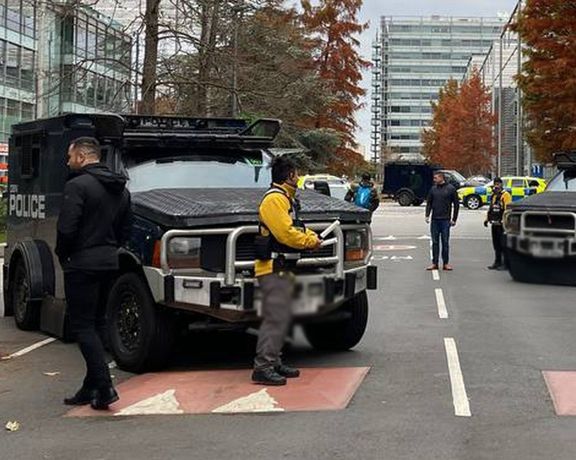
Canada has strongly condemned threats by the Iran's regime against journalists inside and outside the country, stressing that it supports the right to freedom of expression.

Canada has strongly condemned threats by the Iran's regime against journalists inside and outside the country, stressing that it supports the right to freedom of expression.
The foreign ministry told Iran International in a statement on Friday that “Ottawa stands for the right of everyone to hold opinions without interference and the right to freedom of expression and peaceful assembly, as enshrined in the Universal Declaration of Human Rights and the International Covenant on Civil and Political Rights.”
It also slammed the Iranian regime's gross and systematic violations of human rights and intimidation of its own people.
“We stand with the people of Iran, who call for change based on equality, respect and justice.”
The statement stressed that journalists, activists and media workers are the cornerstone of fair, strong and vibrant societies and must be free to do their work without fear of reprisals, political interference or intimidation.
“Any violence and intimidation against journalists or activists is completely unacceptable and must be condemned.”
Iran International was warned by British authorities in November that its journalists were under threat from Iranian agents and London’s Metropolitan Police took measures to strengthen security around the network’s office in the area.
On February 18, the network announced that following the advice of UK anti-terrorism officials it decided to temporarily move its studio operations to the US.
The decision solicited worldwide condemnations of Iran’s malign activities and specially threats against journalists.
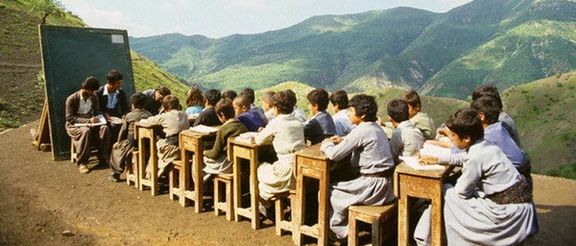
Demands for education to be taught not only in Persian but also in the mother tongue of the many communities within Iran, has gone viral on social media.
Sparked by International Mother Language Day, February 21, some speakers of Iran’s many languages including Turki, Kurdish, Balochi and Arabic, are demanding access to education in their native languages.
Heated discussions have flooded social media, especially among the opposition, with allegations of separatism for the government's policy to enforce only Persian language education.
Proponents of education in mother language argue that teaching only in Persian is detrimental to the development of many children whose mother language is different. Some suggest it can cause psychological pressures on young children when they begin their education, hindering their progress.
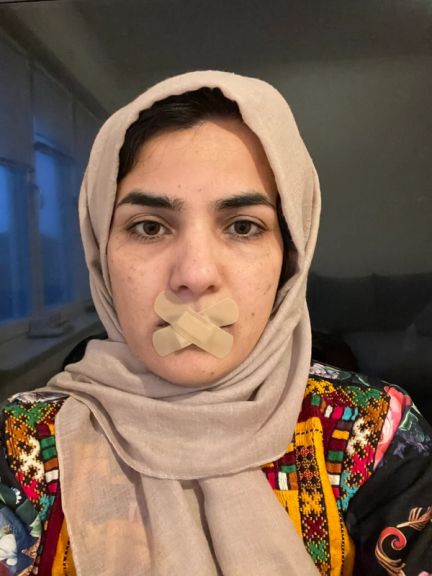
In a paper presented to the Second Development and Educational Equality Conference in 2016, prominent economist Mohsen Renani said over 65 percent of the children who had to repeat the first and second years of school were from nine provinces where the first language is not Persian.
“By forcing education in Persian, we reduce the speed of mental and personal development of around half of the country’s population and deprive them of opportunities in favor of Persian-speaking children,” Renani wrote. In the absence of any official data, Renani estimated the total population of non-Persian speakers between 42 to 49 percent of all Iranians.
Article 15 of the Constitution of the Islamic Republic recognizes Persian as the “official language and script of Iran, the lingua franca of its people.” However, it also recognizes the the use of “regional and tribal languages in the press and mass media, as well as for teaching of their literature in schools.”
Some of the programs of the state broadcaster’s local stations are broadcast in other languages including Turki and Kurdish, Arabic and Gilaki but none of the many languages of Iran are allowed to be taught in schools, whether public or private, despite the Constitution. Learning classical Arabic, however, is compulsory after primary education on religious grounds.
Authorities often shut down cultural and literary societies formed to promote other languages and teachers such as Zahra Mohammadi, a Kurdish language teacher, are often prosecuted on charges of acting against national security. Mohammadi who was serving a five-year sentence was recently released from prison.
The regime is particularly strict about the teaching of languages that are spoken in peripheral areas of the country such as Kurdish and Turki and accuses those who promote these languages of separatism.
Restrictions do not only affect teaching of other languages and publication in those languages. Names can only be chosen from a list of approved Persian and Arabic (religious) names. Mahsa Amini, whose death in custody sparked the recent months of unrest, was named Jina by her family but her birth certificate had to be issued as Mahsa.
A survey by Gamaan Institute a year ago found that 85% of respondents considered Farsi (Persian) as the most appropriate official or common language for Iran and 65% agree that schools should teach native languages in addition to Farsi while 19% of respondents disapproved of this option. On the other hand, 61% disagreed with the statement “I prefer my child to receive higher education in their native language rather than in Farsi”, while 18% agreed.
The survey was carried out between February 17-27, 2022. Over 20,000 respondents over the age of 19 participated in this study. The final sample used in the report consisted of 16,850 Iranians living inside Iran.
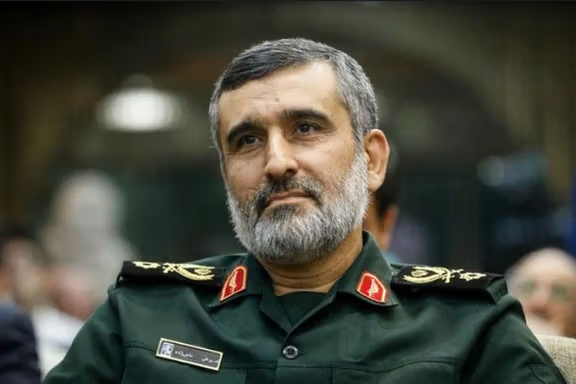
Iran has developed a cruise missile with a range of 1,650 km a top IRGC commander claimed Friday, as he threatened to kill former US President Donald Trump.
Separately, Amirali Hajizadeh, the head of the Revolutionary Guards aerospace force, also spoke of Iran's often repeated threat to avenge the US killing of Qassem Soleimani, Tehran’s top military and intelligence operator in the Middle East, saying "We are looking to kill (former US President Donald) Trump."
The IRGC’s provocative statements come at a time when Western powers are imposing new sanctions on the Islamic Republic and Iran’s economy is in a downward spiral.
On Saturday, the currency, rial, hit another all-time low of 565,000 against the US dollar, an almost 100-percent depreciation since September when nuclear talks with the United States, United Kingdom, France and Germany reached a deadlock.
"Our cruise missile with a range of 1,650 km has been added to the missile arsenal of the Islamic Republic of Iran," Hajizadeh, told state TV.
The television broadcast what it said was the first footage showing the new Paveh cruise missile.
The four Western powers have adopted a tougher stance against Tehran since Russia started to use Iranian-supplied kamikaze drones against Ukraine in early October. At the same time, the Islamic Republic’s bloody crackdown on popular protests and the killing of more than 500 civilians raised outrage in Europe and North America.
Hajizadeh said Iran did not intend to kill "poor soldiers" when it launched a ballistic missile attack on US-led forces in Iraq days after Iranian military commander Soleimani was killed in a US drone strike on January 3, 2020 in Baghdad.
"God willing, we are looking to kill Trump. (Former Secretary of State Mike) Pompeo ... and military commanders who issued the order (to kill Soleimani) should be killed," Hajizadeh said in the television interview.
Iranian leaders have often vowed to avenge Soleimani in strong terms.
Iran has expanded its missile program, particularly its ballistic missiles, in defiance of opposition from the United States and expressions of concern by European and regional countries. Tehran says the program is purely defensive and of a deterrent nature.
At the same time, the spokesman of Iran’s foreign ministry, Nasser Kanaani told Russia’s Sputnik website that Tehran is ready to resume the nuclear talks. He also claimed that whatever weapons it supplied Russia were before the war in Ukraine – a claim previously made by the foreign minister.
Iran has said it had supplied Moscow with drones before the war in Ukraine. Russia has used the drones to target power stations and civilian infrastructure. But multiple reports point to continues supply of drones, and Western powers have voiced concern of Iran supplying missiles to Russia, which has used most of its precision, long-range arsenal.
In November, the Pentagon said the United States was skeptical of reports quoting Hajizadeh as saying Iran had developed a hypersonic ballistic missile.
Iranian officials often make exaggerated claims about their military and intelligence prowess that cannot be verified independently.
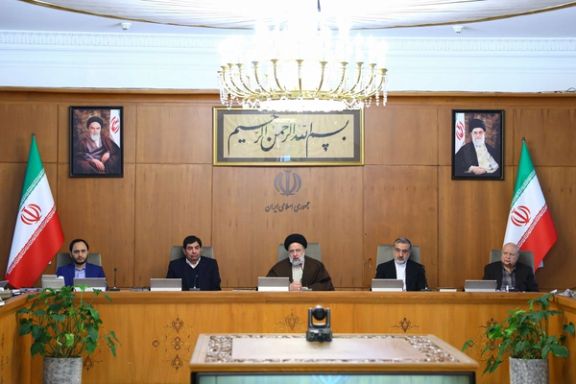
An Iranian reformist cleric says two hardliner factions in Iran control the whole political system and prevent a dialogue to make changes or revise the constitution.
Ahmad Mazani, who was also a lawmaker, likened one group of hardliners to the Islamic State militant group. However, he said that both hardliner factions are reactionaries.
Speaking at the congress of the pro-reform Mardomsalari (Democracy) Party, on Thursday, Mazani said one of the two poles consists of political dwarves. He was presumably referring to the Raisi administration. Also, in an apparent reference to ultraconservatives who challenge the government from within, he called one faction an ISIS-like pole that has deprived Iranians from their right to run "an ordinary life".
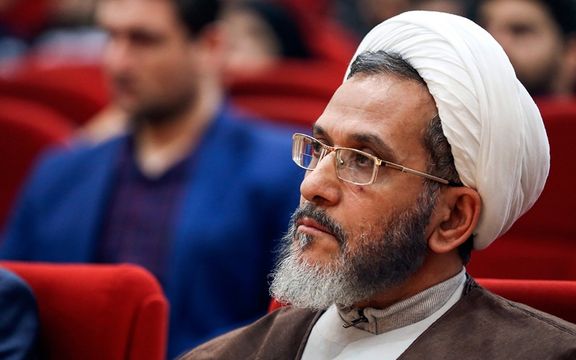
Meanwhile, in an interview with the website of Iranian Sociologists’ Association, prominent academic Mohammad Fazeli said that the current situation in Iran is marked by people’s deep distrust of the government.
Fazeli argued that "in the absence of trust in the government people do not have any long-term plans. In an economy with a double-digit inflation rate and under economic sanctions, political pressures, and the government's intervention in the citizen's private lives, those who have the financial resources will not invest in a factory. They will instead purchase gold and foreign currencies for short-term profit."
Opportunism and short-term planning will become a characteristic of a society in which the people do not trust the government. Such a situation does not leave too many choices for citizens, he said. “
“When the house is on fire, you have only two choices, jumping out of the window or taking the fire exit to make it to safety," he said, adding that "In a society under pressure you cannot expect individuals to consider a series of options. Even if there are really some other options, people tend to choose the ones that help them save themselves as soon as possible."
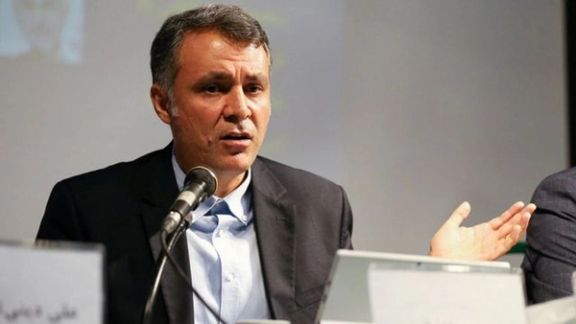
Asked if Iran's future is going to be as horrible as some analysts portray, Fazeli said, "I cannot say for sure, but I can only say it can well end up that way. We have seen other countries in similar situations in the Middle East, the Balkans and Africa. Whether the same thing will happen in Iran depends on other factors," but did not elaborate.
Fazeli said, "The Iranian state television, for instance, has said that as a media outlet that has to convey the government's messages, it has been losing audience during the past years. This is an example of loss of social capital. So, the state television in Iran is no longer a media outlet for the people of Iran. It is a radio and television organization that broadcasts to a small group of people and likes to convince them, not the nation as a whole."
He added, "I believe the only thing on the Iranian state television that is meant for everyone is football. Because it lacks any ideological content and advertisers are happy to pay for commercials." Fazeli added that state TV officials have deliberately decided not to run a television station for all the people.
In the current Iranian crisis, there are also elements who advocate destruction, the sociologist maintained. They believe nothing will be made right before everything goes wrong. In fact, in a situation marked by distrust anything goes.
The academic reiterated that lost social trust cannot be restored easily. "The government needs to take the first step for confidence building by engaging in symbolic acts. It should offer gestures to the society that indicate there is a will in the government to make things right."
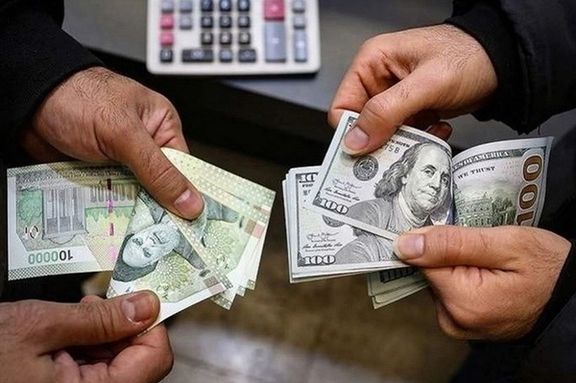
Iran’s currency rial kept hitting new lows on Friday and broke another resistance point, dropping to 540,000 to the US dollar and 570,000 to the euro.
The new record low was recorded in unofficial trading on Friday, which is weekend in Iran and many people are waiting to see the trade rate Saturday morning.
Last Monday, the country experienced a shock when the rial fell to more than 500,000 against the US dollar from 460,000 only a week earlier and 300,000 in late August.
The cash-strapped regime is trying all the tricks to stop the devaluation of its currency but to no avail as the inflation rate is rising and people are desperate as they cannot afford basic foods.
If the rapid slide continues in the coming days, it will make daily living almost impossible for ordinary Iranians, who already cannot afford higher-priced meat, dairy and other necessities.
An informed Iraqi source told Iran International on Thursday that the recent trip by Iran’s Foreign Minister Hossein Amir-Abdollahian to Baghdad was focused on ways to retain the flow of foreign currency from the neighboring country.
Earlier in the month, Iran International obtained information that the Islamic Republic is suffering from heavy financial losses because a huge amount of its money is blocked in Iraq because of US sanctions.
Washington has imposed new restrictions on dollar transfers to Iraq as the Arab country’s banking officials believe there is widespread money laundering sending funds to Iran and Syria.
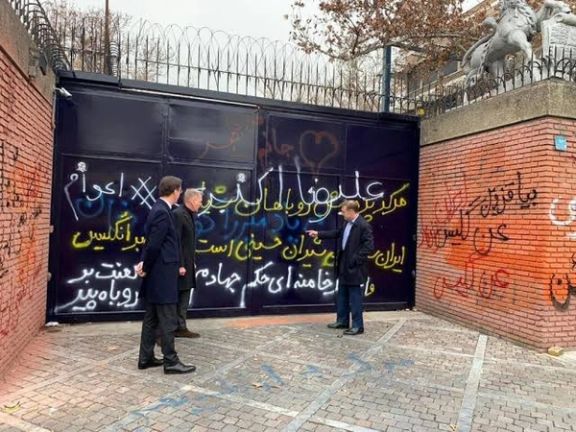
Iran is reportedly preparing to close the British embassy in Tehran as tensions simmer over a plot to kill journalists in UK, and London’s rebuke of crackdown on dissent.
In an exclusive report on Friday, the Jewish Chronicle claimed that Iranian officials revealed “the possible step” at a secret meeting with ambassadors from Oman, Kuwait, and the United Arab Emirates on Tuesday.
The media outlet cited one of those present at the meeting as saying that the Islamic Republic plans to announce a range of new sanctions to hit back at Britain, which has imposed several rounds of sanctions since the current wave of protests began in the country sparked by the death in custody of 22-year-old Mahsa Amini in September.
On Wednesday, February 22, Iran’s Revolutionary Guard took credit for the relocation of Iran International studiosfrom the UK to the US following terror threats, calling it a victory for the Islamic Republic.
The British embassy in Tehran has been a regular flashpoint in recent years. In December 2022, its walls were defaced by the Basij paramilitary militia, one of the forces operating under the IRGC, with slogans labelling it a “terrorist center”.
According to UK Security Minister Tom Tugendhat, Iran is also hiring organized criminal gangs to spy on Britain’s Jews in preparation for a potential assassination campaign against prominent community members. Earlier in the month, Jewish journalist Catherine Perez-Shakdam -- who infiltrated the regime and met Supreme Leader Ali Khamenei -- told the JC the plans were designed to ensure “the diaspora would have a very nasty surprise” in the event of an Israeli attack on Iran’s nuclear facilities.